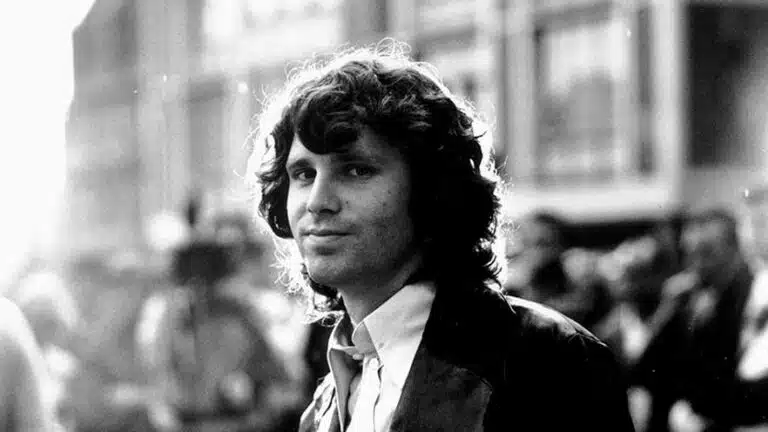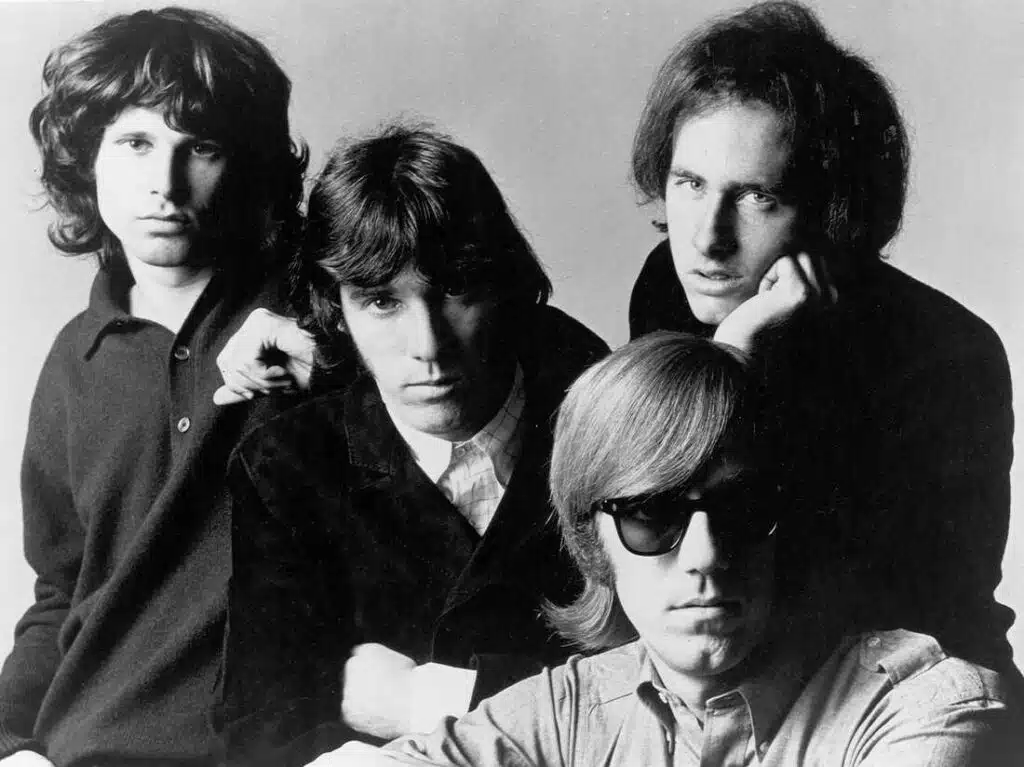Jim Morrison | Heart Failure & Suspected Heroin Overdose Death
- How Jim Morrison Died
- About Jim Morrison
- The Doors
- History Of Substance Abuse
- Did Jim Morrison Attend Rehab?
- Recovery Is Possible

On July 3, 1971, Jim Morrison was found dead in the bathtub of his Paris apartment at the age of 27. His girlfriend, Pamela Courson, discovered Morrison’s body that morning.
Although heart failure was speculated to cause Morrison’s death, no autopsy was performed. The official cause of death was never determined, but some close to Morrison at that time suspect he died of a heroin overdose.
Before Jim Morrison’s death, he was the lead singer and frontman of seminal American rock group The Doors. Morrison’s poetic lyrics, combined with the band’s psychedelic music and brash stage presence, cemented The Doors as rebellious icons during their short music career.
How Jim Morrison Died
Jim Morrison left The Doors in 1971, when he moved to Paris, France with his girlfriend Pamela Courson.
Drug and alcohol abuse continued to play a major role in his life, and he died in July of 1971 of suspected heart failure. Morrison was buried at Pere Lachaise Cemetery in Paris, and his gravesite is a popular tourist attraction.
Heroin Overdose Speculation
In 2007, a Parisian nightclub owner named Sam Bernett published a book alleging that Jim Morrison died of a heroin overdose in Bernett’s nightclub, and the scene of his death in his apartment was set up to look like an accident. These claims cannot be proven.
Speculation and conspiracy theories about Morrison’s death continued, but heart attack remains the most prominent theory about his death. The lack of autopsy reports means that a definitive cause of death may never be revealed.
About Jim Morrison
Born James Douglas Morrison on December 8, 1943, the young Morrison rarely stayed in one place for a long time, due to his father’s military status. Morrison would become a rebellious teenager in high school, where his affinity for alcohol may have started.
After high school, Morrison studied film at UCLA, where he also became enamored with the works of poets Allen Ginsberg and Jack Kerouac. The poetic quality of Morrison’s lyrics as a songwriter would play a major role in his future success as a rock star.
The Doors
In 1965, Jim Morrison formed The Doors with pianist Ray Manzarek, guitarist Robby Krieger, and drummer John Densmore. The Doors quickly rose to fame, releasing six albums in six years. Their greatest hit, “Light My Fire,” reached No. 1 on the Billboard pop charts.

Behind the successes of his rock band, Jim Morrison struggled to balance his fame with his volatile temperament. He gained a negative reputation for his profanity-laced outbursts at concerts, and was arrested once for indecent exposure at a Florida concert.
Jim Morrison’s History Of Substance Abuse
Jim Morrison had a long history of drug and alcohol abuse. His alcohol addiction has been documented by Rolling Stone Magazine, his bandmates, his partners, and other sources.
The 1991 biopic film The Doors suggests Morrison convinced his bandmates to try psychedelic drugs, which led to the band’s raucous shows in Los Angeles, California. This scene is shown to be the catalyst of the band’s sudden rise to fame.
Many songs in The Doors’ discography reference alcohol and drugs.
“Light My Fire,” the band’s most popular song, has a line about getting high. Morrison’s reputation for alcohol and drug abuse may have contributed to his image as a rebellious rockstar, instead of being viewed as a mental health issue.
Did Jim Morrison Attend Rehab?
Along with Jimi Hendrix, Janis Joplin, Kurt Cobain, and many others, Morrison died a troubled adult at the age of 27, with a promising career seemingly still ahead of him.
Alcohol and drug abuse contributed to Morrison’s rockstar image, but they may have also led to his untimely end. It’s unknown whether or not Morrison sought help after leaving The Doors, and the circumstances around his death may be shrouded in mystery indefinitely.
Recovery Is Possible
Drug and alcohol abuse can upset the stability of anyone’s life. However, recovery is possible with a strong foundation of support and evidence-based therapies in a professional setting.
To learn how our inpatient and outpatient treatment programs address drug and alcohol addiction, please contact us today.
Written by Ark Behavioral Health Editorial Team
©2024 Ark National Holdings, LLC. | All Rights Reserved.
This page does not provide medical advice.
Biography.com - Jim Morrison - Death, Quotes & The Doors - Biography
Rolling Stone - Jim Morrison: Rolling Stone Interview With the Doors’ Singer

Questions About Treatment?
Ark Behavioral Health offers 100% confidential substance abuse assessment and treatment placement tailored to your individual needs. Achieve long-term recovery.
100% confidential. We respect your privacy.
Prefer Texting?
Our friendly support team is here to chat 24/7. Opt out any time.

People Also Read
- List Of 32 Musicians Lost To Drug Overdose
- 20 Celebrity Deaths Involving Drugs
- Celebrity Heroin Deaths
- List Of 19 Actor Deaths Involving Drugs
- Janis Joplin | Heroin Overdose Death
- How Did Jimi Hendrix Die?
- 10 Songs About Heroin Addiction arkbh.com https://www.arkbh.com › blog › 10-songs-about-heroin
- Is Heroin Addictive?
- Warning Signs Of Heroin Addiction
- The Dangers Of Mixing Heroin & Cocaine






 Learn More
Learn More








